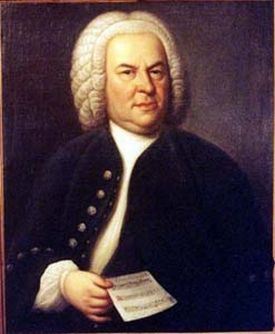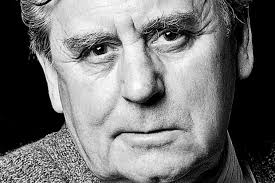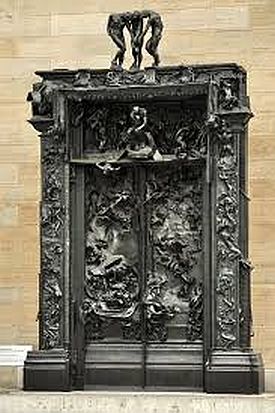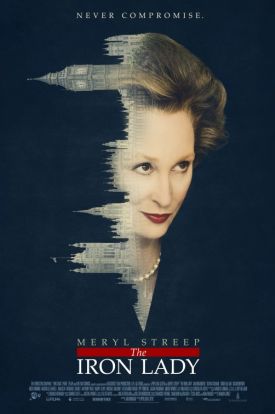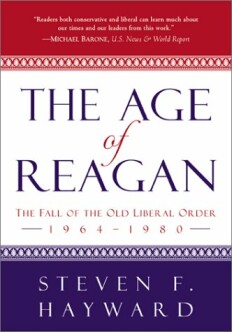The Art of Discrimination
From The American SpectatorAnthony Tommasini, music critic of The New York Times, greeted the New Year by ranking, in order, the top ten dead classical music composers since J.S. Bach, who not quite unpredictably landed in his top slot. The piece had something of the journalistic gimmick about it and was perhaps a way of attempting to ameliorate what Mr Tommasini’s own paper had called a few weeks earlier “the Classical Music Recession.” It may not be coincidental either that music critics — as Michael Johnson pointed out in The American Spectator online — were also feeling the effects of that recession in many parts of the country as their jobs have eliminated with alarming frequency. But the gimmick was irresistible nonetheless.
Bach was Mr Tommasini’s terminus a quo because, in setting out the ground rules for his little contest, he had seemed to feel that he needed an excuse for excluding more antiquated composers like Monteverdi and Josquin des Prez. “The traditions and styles were so different back then as to have been almost another art form,” he writes, rather unpersuasively. Likewise, the designation of “Western classical music,” so inadequate in so many other ways, was useful for excluding George Gershwin or Duke Ellington without offending their many admirers. Furthermore, his requiring the inhabitants of his Pantheon to have assumed room temperature precluded any offense to living composers with a self-conceit of ranking, once they are given their due, alongside Bach and Beethoven — who, naturally, came second. “We are too close to living composers to assess their place and their impact,” writes Mr Tommasini — which may or may not be true but which I suspect has little to do with the exclusion.
 |
Of course he gets it wrong, if not all wrong. So, equally of course, did Charles Murray in Human Accomplishment (2003). There, in a time frame that extended as far back as to Monteverdi, if not to Josquin, Mr Murray gave the top slots to Beethoven, Mozart and Bach rather than Bach, Beethoven and Mozart. Yet he would also have considered it a matter of some remark that seven of Mr Tommasini’s top ten are also in Mr Murray’s — the other four, since you ask, are Schubert, Debussy, Stravinsky and Wagner — and that probably as many would be in yours or mine (though they might well be a different seven), if we were so ill-advised as to draw up such a list ourselves. This indeed, namely the fact that the list was not his own but represented a consensus and that, therefore, the idea of “greatness” is not merely subjective but corresponds to something real and permanent and even (dare we say it?) objective in a properly cultivated taste for music as for the other arts, was the very raison d’ tre for Mr Murray’s list. Mr Tommasini, by contrast, treats his as being frankly and unabashedly subjective, apart from an incidental mention of his disagreement with “a reader (‘Scott’) who questioned the whole notion of greatness in music.”
Neither he nor The New York Times can be quite unaware that “Scott” is not just some mononymic e-mailer with time on his hands but a spokesman for the whole cultural tendency of our time, which depends on a firm if usually non-explicit denial of the very idea of greatness in art. That is the salient feature of the transition from modernism to post-modernism. Just as modernism is inconceivable without the worship of the artist-hero that it inherited from romanticism, so post-modernism is inconceivable with it. “Greatness,” like everything else (see “Taking ‘Offense'” in The American Spectator of February, 2011), can only exist within quotation marks. Shakespeare and “Jersey Shore” and Batman comics are alike reduced to being social and political signifiers, so there can be little point to distinguishing between them further. The only intellectual stardom remaining belongs to the clever critic, who has found the way to persuade you of the massively counter-intuitive truth that these otherwise various artifacts are equivalents, at least in the only system of value — inevitably a political one — that is allowed to mean anything anymore.
In other words, Mr Tommasini has no theoretical basis for his continuing to cling to outdated modernist assumptions about musical greatness, yet he seems oddly unashamed about it, as do others who would doubtless recoil in horror at the idea that they were lending credence to conservative tastes and their highly reactionary canons. Leon Wieseltier of The New Republic, for example, fulminates against the bumptious self-comparisons of Bono (now at work bringing Spider-Man to the New York stage) with Rilke or Blake and the rapper Jay-Z (whose latest star turn is in “Monster,” Kanye West’s music-video celebrating necrophilia) with Dickens or Shakespeare. These and similar imbecilities which are the product of our “habit of analogical exaggeration” must have something to do, thinks Mr Wieseltier, with the “culture of references in which we live. The common analysis of poems and novels and paintings and songs is now in terms of other poems and novels and paintings and songs, so that the experience of a work of art is preempted by names for it, by an associative shorthand for perceptions that we have forgotten how otherwise to describe, by a loop of allusions that assure us of our in-the-knowness and arm us against any disruption of it. It is a way of playing a game.” It is also a way of highlighting the essentially parasitic quality of post-modern culture.
 |
Another way to put it would be to say that Rilke and Blake and Dickens and Shakespeare are now brand names much more than they are writers to be read and understood. New writers and artists and the critics who are their camp followers engage in what, in other contexts, is called “associative marketing” by trying to identify themselves or their products with these established brand names. But although that tactic depends on the popular attachment to a sort of fossilized version of the “greatness” game recently re-popularized by Anthony Tommasini, it also arises naturally out of the leveling spirit of post-modernism which implicitly denies that there is any such thing as greatness in the arts — and does so precisely through such comparisons as these. The charge of intellectual snobbery is so terrifying to us, it appears, that we will not only allow Jay-Z his self-claimed place alongside Pound and Eliot, but we will sacrifice Pound and Eliot themselves to the comparison by reducing our critical engagement with them to a catalogue of their hypertextual linkages.
Leon Wieseltier feels the necessity of deprecating that same charge against himself by readily agreeing, by way of clearing his throat, that “it is not at all blasphemous. . . to suggest that an heir of Rilke or Dickens may arise among us” before going on to the inevitable “But” —
But nothing will stunt our reach more than the corruption of our ideas of quality. Lowering a standard is certainly one way of meeting it; but the glory is lost with the strain. The teaching of Rilke, Blake, Eliot, Pound, Shakespeare, Dickens, and Franklin is not: relax, or be yourself. It is: brave the distinctions. The offense in those inflated comparisons is, quite simply, that they are false; and their falsity creates a climate that degrades the very ambition that they pretend to honor. This crap damages the culture. It takes more than the recollection of a rough childhood to make a book Dickensian, and the acceptances and transfigurations of Rilke — which have nothing to do with “the costs of feeling” — are larger and harder than Peter Parker’s struggles with young adulthood, even if the poet never walked up the side of the castle.
“Brave the distinctions” is a good way of putting it, and distinction is near of kin to greatness. Taste itself is a matter of making distinctions — or “discriminating,” to use another politically loaded word. And until we learn to discriminate again, the Classical Music Recession, which must owe something to a vague sense on the part of audiences that Bach and Beethoven are just more primitive versions of Lady Gaga, will never be over. Nor will we be quite free of the scourge of Multiculturalism whose death Roger Scruton announced, perhaps prematurely, in our December-January issue (see “Multiculturalism, R.I.P.”) and which proceeds from the same politically correct refusal to make necessary discriminations between cultural phenomena. The casualness with which we treat those discriminations must also be connected, I feel sure, with the liberal sneering that went on over the new Republican majority’s decision to kick off the 112th Congress with a reading of the Constitution. “Originalism” is their great bugbear partly because they depend upon a legal equivalent of the “habit of analogical exaggeration” to render our Founding document irrelevant to what they want to do. It doesn’t do to look too closely at what the Constitution actually says if you want to make an easy identification of its carefully written strictures with progressive good intentions. It’s time for us all to join the House majority by defying the spirit of the age and braving the distinctions.
Discover more from James Bowman
Subscribe to get the latest posts to your email.

